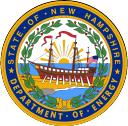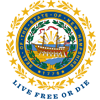Frequently Asked Questions
As the state’s advocate for residential ratepayers, we love to answer questions from New Hampshire’s utility customers. Here are some of our favorites, with our answers.
-
I disagree with something on my utility bill or something about my utility service is not right. Where can I get help?
-
I am having trouble paying my utility bill. Where can I get help?
-
How can I get involved in a case pending at the Public Utilities Commission?
-
How can I purchase electricity from somewhere other than my local electric utility?
-
Why are electricity, natural gas, and water so expensive in New Hampshire?
-
How can I save money on my energy bill?
-
I get my electricity from the New Hampshire Electric Cooperative or a municipal electric department like the ones in Ashland, Littleton, New Hampton, Wolfeboro, or Woodsville. Can you help me?
-
How are utility rates set by the Public Utilities Commission?
-
What aspects of my electric and natural gas service are regulated at the federal level?
-
What agency regulates the siting of energy facilities? Is the OCA involved?
-
What does the New Hampshire Department of Energy do?
-
How can I contact the Consumer Advocate with a question or concern?
-
I disagree with something on my utility bill or something about my utility service is not right. Where can I get help?
You should call or contact the Consumer Services Division of the Department of Energy, which has a team of specialists ready to assist you. The Office of the Consumer Advocate does not handle individual customer complaints.
-
I am having trouble paying my utility bill. Where can I get help?
Here is a link to our web page describing the various available programs.
-
How can I get involved in a case pending at the Public Utilities Commission?
Please see our guide to Participating in PUC Proceedings.
-
How can I purchase electricity from somewhere other than my local electric utility?
Pursuant to the Electric Industry Restructuring Act of 1996 (RSA 374-F), customers of electric utilities – including members of the New Hampshire Electric Cooperative – have the right to purchase electricity from a competitive power supplier. See the Department of Energy's Choosing an Energy Supplier page along with some suggestions from us on our Help Page.
-
Why are electricity, natural gas, and water so expensive in New Hampshire?
There is no single "magic bullet" answer to this question. Factors include: New Hampshire's distance from sources of fossil fuel such as natural gas, our cold winters (which increase demand), the high cost of the region's bulk power transmission system (which, in fairness, means congestion is minimal, facilitating competition), wholesale market rules that limit the ability of renewable energy producers to take advantage of subsidies (in states other than New Hampshire) to lower market prices, and grassroots opposition to new energy facilities. In the case of water utilities, in some instances owners have failed to make necessary infrastructure investments and there is a need to "catch up," which exerts upward pressure on rates.
Utility customers in New Hampshire should keep in mind that while the PUC sets utility rates, customers pay bills rather than rates. In other words, in many instances where rates are relatively high the monthly bill of a typical residential customer is relatively low.
-
How can I save money on my energy bill?
Every electric and natural gas customer of public utilities in New Hampshire helps pay for, and therefore should use, the NHSaves programs – whose purpose is to help the state's energy users become more energy efficient. Energy efficiency simply means getting more heat, light, or other useful work out of each unit of energy consumed. Overall, the cost of "negawatts" – energy efficiency measures – compares favorably to the cost of "megawatts" (supply options, including the cost of the infrastructure). Each program offered by NHSaves must meet a rigorous benefit-cost test to assure that all ratepayers receive net benefits regardless of whether they participate in the NHSaves programs directly
-
I get my electricity from the New Hampshire Electric Cooperative or a municipal electric department like the ones in Ashland, Littleton, New Hampton, Wolfeboro, or Woodsville. Can you help me?
Members (i.e., customers) of the New Hampshire Electric Cooperative (NHEC) have the right to participate in the governance of their co-op. They have exercised their right to vote to exempt the NHEC from most regulation by the PUC. Nevertheless, the OCA maintains good relations with the NHEC and can help NHEC members exercise their rights.
Electric customers in Ashland, Littleton, New Hampton, Wolfeboro, or Woodsville should contact their municipal electric departments or, as necessary, their local selectboards, with any concerns about electric service in those towns.
-
How are utility rates set by the Public Utilities Commission?
The PUC sets utility rates via "rate cases" that begin when a utility seeks to change its prices. A rate case is a two-step process. First, the PUC determines the utility's revenue requirement – how much money the utility needs to receive on an annual basis to meet its operating costs, make payments on its debt, and provide a reasonable return on shareholder investment. Second, the PUC apportions the revenue requirement among the various classes of customers, a process known as "rate design."
The traditional method described above is not the only legally adequate method of setting rates if the Commission is to comply with the statutory requirement that rates be "just and reasonable." Therefore, in recent years the OCA has encouraged the PUC to explore alternative approaches to ratemaking – such as performance-based rates that reward utilities for achieving predetermined service benchmarks. We have also supported so-called "revenue decoupling," in which rates are adjusted, up or down, on a regular basis as demand fluctuates. Revenue decoupling separates a utility company's income from its energy sales thereby removing the incentive to sell more energy in order to make more money.
-
What aspects of my electric and natural gas service are regulated at the federal level?
The Federal Energy Regulatory Commission (FERC) regulates (a) transmission rates, i.e., the cost of moving power at high voltage via the interstate power grid, (b) the cost of wholesale electricity (i.e., electricity that is purchased for resale to end-users), (c) the siting of interstate natural gas pipelines, and (d) rates for transporting gas along such interstate pipelines. The OCA participates in key FERC proceedings affecting New Hampshire ratepayers.
-
What agency regulates the siting of energy facilities? Is the OCA involved?
The state’s Site Evaluation Committee (SEC) is the agency with responsibility for determining whether to approve the proposed siting of major new energy facilities in New Hampshire (e.g., new transmission lines and major generation facilities). The OCA does not participate in proceedings before the Site Evaluation Committee. In SEC cases, an official chosen by the New Hampshire Department of Justice, known as the Counsel for the Public, represents interests similar to those protected by the OCA in PUC proceedings.
-
What does the New Hampshire Department of Energy do?
The Legislature created the state's Department of Energy in 2021 to perform functions previously assigned to the Staff of the Public Utilities Commission. The Department's Consumer Services Division has a team of caseworkers who can help consumers solve individual problems with their utility bills or utility services. The Department oversees the state's Dig Safe and pipeline safety programs; it administers energy-related grant and rebate programs, and through its division of regulatory support appears as a party in PUC proceedings.
-
How can I contact the Consumer Advocate with a question or concern?
Please feel free to e-mail us at oca@oca.nh.gov, to call us at (603)-271-1172, or to write us at:
Office of the Consumer Advocate
21 South Fruit Street, Suite 18
Concord, New Hampshire 03301



